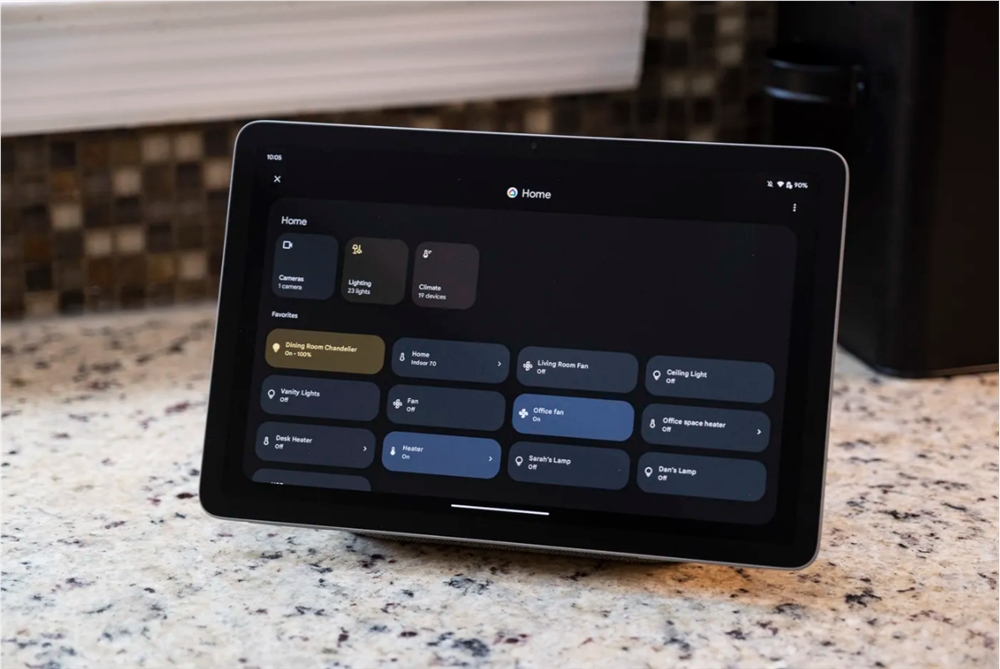Apple plans to launch a new device called the "AI Wall Tablet" next year, aimed at addressing the complexity of smart home interfaces. This new product will be central to the Apple Home platform, capable of controlling smart devices such as lights, locks, security systems, and cameras, striving to provide a more intuitive and efficient operational experience for home automation.
Despite the continuous growth of the smart home market, the complexity of existing devices remains a pain point for users. Many smart displays, such as the Echo Show and Nest Hub, offer voice control and touch screens, yet the user experience is still lacking, especially when it comes to controlling smart home devices. These devices often face issues like complicated setup, unfriendly interfaces, and inaccurate responses from voice assistants, leading many users to abandon them in favor of traditional wall switches.

According to reports, Apple's "AI Wall Tablet" HomePad will feature a six-inch square design that can be mounted on walls or connected to speakers, equipped with built-in security cameras and sensors, supporting both touch and voice control. The HomePad's design will focus on an intuitive and simple user interface, incorporating elements from the iPhone and watchOS, and utilizing a new homeOS system codenamed Pebble. Users will be able to control devices via voice commands as well as easily adjust settings through the touchscreen.
This device may face the same challenges as existing smart displays, but Apple's advantage lies in its mature HomeKit framework and local control technology, which means the HomePad will be able to seamlessly connect and control smart devices in the home without relying on cloud services. This advantage will help it stand out in the competition.

Although Apple has made innovations in hardware and interfaces, its voice assistant Siri remains an area that needs improvement. Currently, Siri's voice recognition capabilities and smart home control functions are not as strong as its competitors, Alexa and Google Assistant. To bridge this gap, Apple is developing a more powerful Siri based on a large language model (LLM), expected to launch in 2026. If Siri can achieve better contextual understanding and respond intelligently based on context (for example, "Siri, I'm cold" automatically adjusts the temperature), it would greatly enhance the user experience.
